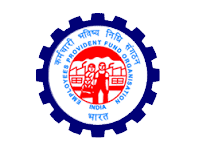Ans. 4 Acts namely, Payment of Wages Act, 1936, Minimum Wages Act, 1948, Payment of Bonus Act, 1965 and the Equal Remuneration Act, 1976.
Ans. The fundamental reforms introduced under the Code on Wages, 2019 include:
Q.3. Does the Code on Wages, 2019 retain the concept of ‘scheduled employment’? Ans. No.
Ans. Yes.
Q. 5. Who is an employer in relation to an establishment, which is a factory as per the provisions of Code on Wages, 2019? Ans. The occupier of the factory and where a person has been named as a manager of the factory, the person so named, as per the relevant provisions of the Factories Act, 1948.
Q. 6. Does the Code on Wages, 2019 permit/allow discrimination in an establishment or any unit thereof among the employees on the grounds of gender in matters relating to wages by the same employer in respect of the same or similar nature of work done by an employee? Ans. No.
Q.7. What is meant by ‘same work or work of a similar nature’ in the context of Code on Wages, 2019 ? Ans. ‘Same work or work of a similar nature’ means the work in respect of which the skill, effort, experience and responsibility required are the same, when performed under similar working conditions by employees and the differences, if any, are not of practical importance in relation to the terms and conditions of employment.
Q. 8. What are the two methods for fixation or revision of minimum rates of wages under the Code on Wages, 2019? Ans. I) Appointment of as many committees as deemed fit by the appropriate government to hold enquiry and make recommendations; ii) Publication of notification of its proposals for the information of the persons likely to be affected by such notification.
Q. 9. What are the components included in the definition of Wages as per the Code on Wages, 2019? Ans. The components included in the definition of Wages as per the Code on Wages, 2019 are:
Q.10. Does the Code on Wages, 2019 provide for fixation of floor wage by the Central Government and what purpose does it serve? Ans. Yes, the Code on Wages, 2019 provides for the same. As per section 9(1) of the Code the power for the same has been given to the Central Government which has to take into account minimum living standards of a worker in the manner as prescribed and different floor wage may be fixed for different geographical areas. Section 9(2) of the Code provides that the minimum rates of wages fixed by the appropriate Government under section 6 of the Code shall not be less than the floor wage fixed by the Central Government.
Q.11. What is the rate of payment of wages for the overtime work put in by an employee whose minimum rate of wages has been fixed under the Code on Wages, 2019 by the hour, by the day of by such a longer wage period as may be prescribed? Ans. Not less than twice the normal rate of wages(Section 14 of the Code on Wages, 2019).
Q.12. What are the different wage periods under the Code on Wages, 2019, in case of the employees working on time work basis? Ans. In case of the employees working on time work basis, there are four possible wage periods i.e. (i) daily, (ii) weekly, (iii) fortnightly and (iv) monthly, subject to the condition that no wage period in respect of an employee shall be more than a month.
Q.13. What is the time limit for payment of wages in normal situations in respect of the employees working on time work basis as per the Code on Wages, 2019? Ans. The time limit is as follows:
Further, where an employee has been removed or dismissed from service; or retrenched or has resigned from service, or become unemployed due to closure of the establishment, the wages payable to him shall be paid within two working days of his removal, dismissal, retrenchment or, as the case may be, his resignation.
Ans. Three month.
Ans. Upto 10 times of the determined claim.
Ans. ₹ 50,000/-.
Ans. One third of total members.
Q. 18. What is the maximum penalty that can be imposed on an employer having been convicted of an offence of paying less than the due wages and again being found guilty of the same offence within 5 years from the date of the first or subsequent offence? Ans. Imprisonment extending up to 3 months or fine upto ₹ one lakh or both.
Q. 19. Which type of offence committed by the employer can be compounded by the Gazetted Officer as per the Code on Wages, 2019? Ans. Offence punishable with fine only.
Q. 20. What is the amount/sum for which the offence committed by the employer can be compounded by the Gazetted Officer as per the Code on Wages, 2019? Ans. An amount/sum of 50% of the maximum fine provided for such offence. |


























